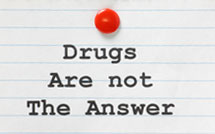 Get Help Now
Get Help Now

Drug addiction is a complex illness characterized by intense and, at times, uncontrollable drug or alcohol cravings, along with compulsive drug seeking and use that persist even in the face of devastating consequences. While the path to drug addiction begins with the voluntary act of taking drugs, over time a person’s ability to choose not to do so becomes compromised, and seeking and consuming the drug becomes compulsive. This behavior results largely from the effects of prolonged drug exposure on brain functioning. Addiction is a brain disease that affects multiple brain circuits, including those involved in reward and motivation, learning and memory, and inhibitory control over behavior.
Remaining in a residential treatment center for an adequate period of time is critical
The appropriate duration for an individual depends on the type and degree of his or her problems and needs. Research indicates that most addicted individuals need at least 3 months in treatment to significantly reduce or stop their drug use and that the best outcomes occur with longer durations of treatment. Recovery from drug addiction is a longterm process and frequently requires multiple episodes of treatment. As with other chronic illnesses, relapses to drug abuse can occur and should signal a need for treatment to be reinstated or adjusted. Because individuals often leave treatment prematurely, programs should include strategies to engage and keep patients in treatment.
Treatment does not need to be voluntary to be effective
Sanctions or enticements from family, employment settings, and/or the criminal justice system can significantly increase treatment entry, retention rates, and the ultimate success of drug treatment interventions.
Residential Drug Treatment
Residential treatment programs are usually the most effective, especially for those with more severe problems. For example, therapeutic communities (TCs) are highly structured programs in which patients remain at a residence, typically for 6 to 12 months. TCs differ from other treatment approaches principally in their use of the community—treatment staff and those in recovery—as a key agent of change to influence patient attitudes, perceptions, and behaviors associated with drug use. Patients in TCs may include those with relatively long histories of drug addiction, involvement in serious criminal activities, and seriously impaired social functioning. TCs are now also being designed to accommodate the needs of women who are pregnant or have children. The focus of the TC is on the resocialization of the patient to a drug-free, crime–free lifestyle.
Addiction Treatments Including Medications
Medications can be used to help with different aspects of the addiction treatment process.
Withdrawal
Medications offer help in suppressing withdrawal symptoms during detoxification. However, medically assisted detoxification is not in itself “treatment” – it is only the first step in the treatment process. Patients who go through medically assisted withdrawal but do not receive any further treatment show drug abuse patterns similar to those who were never treated.
Treatment
Medications can be used to help reestablish normal brain function and to prevent relapse and diminish cravings. Currently there are medications for opioids (heroin, morphine), tobacco (nicotine), and alcohol addiction and are developing others for treating stimulant (cocaine, methamphetamine) and cannabis (marijuana) addiction. Most people with severe addiction problems, however, are polydrug users (users of more than one drug) and will require treatment for all of the substances that they abuse.
Behavioral Addiction Treatments
Behavioral treatments help patients engage in the treatment process, modify their attitudes and behaviors related to drug abuse, and increase healthy life skills. These treatments can also enhance the effectiveness of medications and help people stay in treatment longer. Treatment for drug abuse and addiction can be delivered in many different settings using a variety of behavioral approaches.
Outpatient behavioral treatment encompasses a wide variety of programs for patients who visit a clinic at regular intervals. Most of the programs involve individual or group drug addiction counseling.
12 Step Programs
A twelve-step program is a set of guiding principles outlining a course of action for recovery from addiction, compulsion, or other behavioral problems. Originally proposed by Alcoholics Anonymous (AA) as a method of recovery from alcoholism, the Twelve Steps were first published in the book, Alcoholics Anonymous: The Story of How More Than One Hundred Men Have Recovered From Alcoholism in 1939. The method was then adapted and became the foundation of other twelve-step programs such as Narcotics Anonymous, Overeaters Anonymous, Co-Dependents Anonymous and Debtors Anonymous.
The criticisms of twelve-step groups are as varied as the pathologies they address. People have attended twelve-step meetings, only to find success eluded them. Their varied success rate and the belief in a Higher Power suggested in them, are common criticisms of their universal applicability and efficacy.
For more information regarding drug addiction treatment in Canada please call us Toll Free: 1-888-898-1110.


